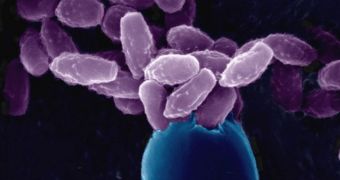There is such a thing as loving yourself a tad too much. And a yeast fungus dubbed Cryptococcus neoformans knows everything about it.
Researchers say that, in order to create a new generation, these microorganisms often mate with others that are genetically identical to themselves. Otherwise put, they make babies with clones of themselves.
According to Live Science, the offspring that are born from identical yeast fungus parents pack extra copies of certain chromosomes.
In the case of humans, having additional chromosomes is linked to disorders such as Down syndrome.
However, in the case of these microorganisms, aneuploidy (i.e. having multiple copies of a chromosome) appears to yield advantages such as resistance to anti-fungal compounds.
Interestingly enough, it looks like, as they grow older, some yeast fungus babies somehow lose the extra chromosomes they were born with. When this happens, they become genetically identical to their parents.
Scientists say that, each year, this fungus infects and kills about 600,000 people. Therefore, understanding how it reproduces can only help when it comes to developing better treatments against it.

 14 DAY TRIAL //
14 DAY TRIAL //